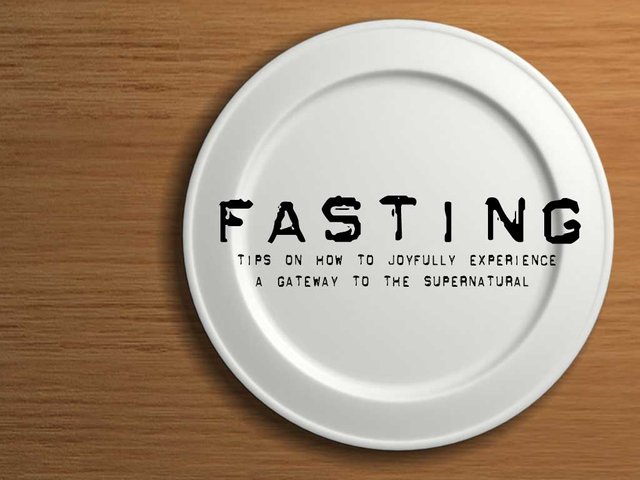
Introduction
Fasting has been a topic of interest to me for a while now. As a martial artist, I've always been interested in exploring ways to improve my health, personal development, and self-improvement. But it wasn't until I heard Elliot Hulse talk about the benefits of fasting that I decided to give it a try.
It's fascinating to think about how animals instinctively fast when they're sick or injured, as a way to allow their bodies to focus on healing rather than digestion. And when you look back through history, you can see that many of the greats from Jesus to Mohammed to Marcus Aurelius practiced fasting for spiritual and physical healing.
With all this in mind, I'm embarking on my longest fast yet, with the goal of improving my mental clarity and overall health. I'm excited to see what kind of benefits I'll experience, and I'll be documenting the journey every step of the way.
In this post we'll explore both the benefits and challenges of fasting for mental clarity and improved health. We'll dive into the science behind fasting, how it affects the body and brain, and what benefits you can expect to see. We'll also discuss some of the challenges that come with fasting and how to overcome them.
Through this journey, I hope to share my personal experience with fasting and provide insight into the potential benefits it can bring to your life. Whether you're a seasoned faster or new to the concept, this post will give you the tools and knowledge to help you make an informed decision about whether fasting is right for you.
II. Benefits of Fasting for Mental Clarity

How fasting can improve mental clarity and focus
Fasting can have a significant impact on mental clarity and focus. When the body is in a fasted state, it experiences a decrease in insulin levels and an increase in glucagon levels. This results in the body switching to a fat-burning mode, which can lead to a greater sense of alertness and focus. Additionally, fasting triggers the production of ketones, which are molecules produced by the liver during periods of low food intake. Research suggests that ketones may help improve cognitive function and enhance memory.
Fasting can also help reduce inflammation, which is linked to several neurological disorders, including depression, anxiety, and Alzheimer's disease. By reducing inflammation, fasting may help improve overall brain health, leading to improved mental clarity and focus.
Another way fasting can improve mental clarity and focus is by promoting the production of brain-derived neurotrophic factor (BDNF). BDNF is a protein that plays a critical role in the growth and maintenance of brain cells. Studies have shown that fasting can increase BDNF levels, which can lead to improved brain function and better mental clarity.
Overall, fasting can be a powerful tool for improving mental clarity and focus. The key is to approach it in a healthy and sustainable way, as abrupt or extreme changes in eating habits can have negative effects on the body and mind.

Scientific research behind Fasting
There have been several scientific studies conducted on the effects of fasting on mental clarity and focus. One study conducted by the National Institute on Aging found that mice who were put on a fasting diet experienced improved cognitive function and increased neuroplasticity, which is the brain's ability to form new neural connections.
Another study published in the Journal of Neuroscience found that fasting can increase the production of a protein called brain-derived neurotrophic factor (BDNF), which is known to promote the growth and survival of neurons in the brain. This increase in BDNF production has been linked to improved cognitive function and enhanced learning and memory.
Other studies have shown that fasting can also reduce inflammation in the brain, which is thought to contribute to cognitive decline and neurological disorders. By reducing inflammation, fasting may help to protect the brain and improve mental clarity and focus.
Overall, while more research is needed to fully understand the mechanisms behind the cognitive benefits of fasting, the existing studies suggest that it can be a powerful tool for improving mental clarity and focus.
Personal Experiences with Fasting
In my personal experience with fasting, I have noticed several benefits to my mental clarity and focus. One of the most significant effects is weight loss, which in turn leads to an increased awareness of my eating habits. After fasting, I find it easier to eat less and save money by avoiding unnecessary snacking or overeating.
Additionally, I have noticed that my sense of smell is heightened during fasting periods. I become more attuned to the aromas of different foods and can easily distinguish between sweet, salty, greasy, and acidic smells.
Finally, during longer fasting periods, I have found that smoking cannabis can help to reduce stress and anxiety, allowing me to focus better on my tasks and goals. While this approach may not be suitable for everyone, it has worked well for me personally.
III. Benefits of Fasting for Improved Health

Health benefits of fasting, such as improved insulin sensitivity and weight loss.
Fasting has been found to have numerous health benefits, including improved insulin sensitivity and weight loss. When we fast, our body has to rely on stored fat for energy, which leads to weight loss. Additionally, fasting can improve insulin sensitivity, which is beneficial for people with type 2 diabetes or those who are at risk for it.
Research has shown that intermittent fasting can also help reduce inflammation and lower the risk of chronic diseases such as heart disease, cancer, and Alzheimer's disease. In addition to these benefits, fasting has also been found to improve immune function and increase longevity.
It is important to note that fasting is not a cure-all and should not be seen as a replacement for medical treatment. However, incorporating fasting into a healthy lifestyle can provide numerous health benefits.

Scientific research behind this claim
Several studies have demonstrated the health benefits of fasting, including improved insulin sensitivity and weight loss. One study published in the New England Journal of Medicine found that fasting can help lower insulin levels and improve insulin sensitivity, which can lead to improved blood sugar control and a reduced risk of type 2 diabetes. Additionally, fasting has been shown to promote weight loss by reducing calorie intake and increasing metabolism. A study published in the Journal of Nutritional Biochemistry found that fasting can increase the activity of genes involved in fat metabolism and promote weight loss. These are just a few examples of the scientific research that supports the health benefits of fasting.
On how fasting can potentially lower the risk of chronic diseases like diabetes and heart disease
Fasting has been shown to have a positive impact on the prevention and management of chronic diseases, such as diabetes and heart disease. One of the reasons for this is that fasting can improve insulin sensitivity, which is important for maintaining healthy blood sugar levels. When the body is in a fasted state, it uses stored glucose for energy, which helps to lower blood sugar levels. Over time, this can lead to improved insulin sensitivity, which can reduce the risk of developing type 2 diabetes.
Additionally, fasting has been shown to have a positive impact on cardiovascular health. Studies have found that fasting can help to lower blood pressure, improve cholesterol levels, and reduce inflammation, all of which are risk factors for heart disease. Fasting can also help to improve the function of the cells lining the blood vessels, which can further improve cardiovascular health.
Overall, the health benefits of fasting are significant and can have a positive impact on a wide range of chronic diseases. While more research is needed to fully understand the mechanisms behind these benefits, the existing evidence is promising.
IV. Challenges of Fasting

Discuss the challenges of fasting, such as hunger, headaches, and irritability
Fasting can be a challenging experience, especially for beginners. One of the main challenges is hunger, as the body is not receiving food for an extended period of time. This can cause discomfort and a feeling of emptiness in the stomach. Headaches can also occur, especially during the first few days of the fast, as the body adjusts to the changes in diet and caloric intake.
In addition, some people may experience irritability or mood swings during a fast. This can be due to the lack of energy and nutrients that the body is receiving, which can affect brain function and emotional stability. It is important to be aware of these challenges and to be prepared for them before beginning a fast.
Despite these challenges, many people find that the benefits of fasting outweigh the difficulties. With proper preparation and support, it is possible to have a successful fast and reap the rewards of improved health and mental clarity.
Overcoming these challenges and make fasting more manageable
There are several strategies that can help make fasting more manageable and overcome the challenges associated with it. One of the most important is to stay hydrated by drinking plenty of water and other non-caloric beverages, such as herbal tea or black coffee. This can help reduce feelings of hunger and also prevent dehydration, which can cause headaches and fatigue.
In addition, finding ways to distract oneself from thoughts of food can be helpful. Engaging in light exercise, such as walking or yoga, can help reduce feelings of hunger and improve mood. Some people also find that taking a nap or meditating can help them manage their hunger and improve mental clarity.
It's also important to listen to your body and break the fast if necessary. If you experience severe headaches, dizziness, or other symptoms, it may be a sign that your body needs food. Don't be afraid to break the fast and resume eating if you need to.
Finally, some people find that using substances like cannabis can help them manage the challenges of fasting. While this may not be the right choice for everyone, it can be a helpful tool for managing anxiety and other negative side effects of fasting. As always, it's important to use any substance responsibly and with awareness of its potential risks and benefits.

Personal experiences I have had with fasting and the challenges I've faced
I have personally faced a number of challenges while fasting, such as hunger pangs, headaches, and irritability. However, I have found ways to overcome these challenges and make fasting more manageable. For instance, I have found that drinking plenty of water and consuming electrolytes can help to stave off hunger and maintain my energy levels. Additionally, I have found that keeping myself busy with work or other activities can help to take my mind off of food.
Another challenge I have faced is the temptation to indulge in my favorite foods while fasting. It seems that every time I start a fast, my favorite foods somehow appear in front of me. To overcome this challenge, I remind myself that nothing is scarce and that I have the power to resist the temptation. Fasting has taught me that even though I may think that things are scarce on certain days, reality challenges me by bringing an abundance of food around me.
There are also external challenges that come with fasting, such as the pressure from family and friends to break the fast or the lack of understanding from others who think that fasting is a silly or dangerous practice. In such situations, I try to remain steadfast in my commitment to fasting and explain the benefits that I have experienced.
In longer fasts, I have found that smoking cannabis can help me cope with stress and anxiety. Despite the reputation of "munchies," I have been able to complete long fasts with the help of cannabis.
V. Tips for Successful Fasting

Tips for making the most out of a fast
When it comes to fasting, there are several tips that can help make the experience more successful. Here are some tips that I have found helpful:
1.Stay hydrated: It is important to drink plenty of water during a fast to avoid dehydration. Dehydration can cause headaches, dizziness, and other unpleasant symptoms. Drinking water can also help curb hunger pangs.
2.Incorporate light exercise: While it is important to rest during a fast, light exercise such as yoga or walking can help improve circulation and reduce stress.
3.Plan ahead: Before starting a fast, it can be helpful to plan out meals and snacks for the day after the fast. This can help avoid overeating or reaching for unhealthy food options.
4.Stay busy: Fasting can be difficult, especially in the beginning. Staying busy with work or hobbies can help distract from hunger and make the experience more manageable.
5.Find support: Having a support system can make all the difference when it comes to fasting. Connecting with others who are also fasting or have experience with fasting can provide encouragement and motivation.
6.Listen to your body: It is important to listen to your body during a fast. If you feel lightheaded or dizzy, it may be time to break the fast. It is also important to break the fast slowly and with nutrient-dense foods.
7.Consider supplements: Supplements such as electrolytes or vitamins can help support the body during a fast and alleviate some of the challenges of fasting.
By incorporating these tips, fasting can be a successful and rewarding experience.

Discussing different fasting methods and which one might be best for different people
There are various methods of fasting that people can choose from, depending on their individual needs and preferences. Here are some of the most common types of fasting:
Intermittent Fasting: This involves alternating periods of eating and fasting. There are different ways to do this, such as the 16/8 method, which involves fasting for 16 hours and eating during an 8-hour window.
Water Fasting: This involves consuming only water for a certain period of time. Typically, water fasting lasts for a few days to a week.
Juice Fasting: This involves consuming only fruit and vegetable juices for a certain period of time. This is often done for a shorter period of time than water fasting.
Modified Fasting: This involves consuming a small amount of food during the fasting period, such as a few hundred calories of fruits or vegetables.
When it comes to choosing the best fasting method for you, it's important to consider your goals and lifestyle. For example, if you have a busy work schedule, intermittent fasting might be the most feasible option. On the other hand, if you're looking for a more intensive fasting experience, water fasting might be the way to go.
It's also important to consult with a healthcare professional before starting any fasting regimen, especially if you have any pre-existing medical conditions.
VI. Conclusion

Fasting can provide numerous benefits for both mental and physical health, such as increased mental clarity and focus, improved insulin sensitivity and weight loss, and a potential reduction in the risk of chronic diseases like diabetes and heart disease. However, fasting can also come with its challenges, including hunger, headaches, and irritability. Overcoming these challenges requires preparation, patience, and a willingness to listen to your body. By staying hydrated, incorporating light exercise, and choosing a fasting method that works best for your lifestyle, you can make the most out of your fast and reap the benefits it has to offer. With careful consideration and the proper guidance, fasting can be a powerful tool for personal development and self-improvement.
Additionally, fasting is not suitable for everyone, and it is crucial to listen to your body and adjust the fasting regimen accordingly. Some individuals may experience adverse effects from fasting, such as low blood sugar, dizziness, or dehydration. Therefore, it is crucial to consult a healthcare provider before starting any new dietary regimen.
In conclusion, fasting can have numerous benefits for mental clarity and improved health. It can improve insulin sensitivity, promote weight loss, and potentially reduce the risk of chronic diseases like diabetes and heart disease. However, fasting can also present challenges such as hunger, headaches, and irritability, which can be overcome by following some of the tips shared in this post.
If you are interested in trying fasting, make sure to do your research, start slowly, and listen to your body. With the right mindset, preparation, and guidance, fasting can be a valuable tool for personal growth and self-improvement.
-The Warrior Philosopher
